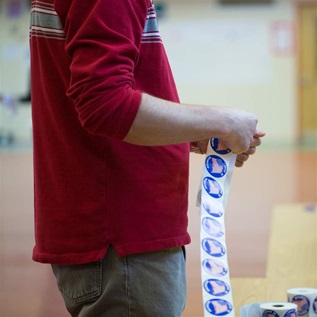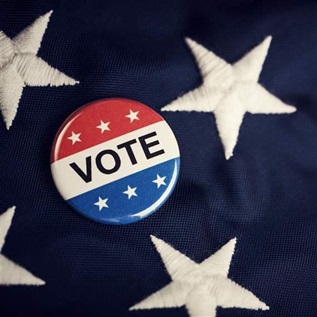Pew Applauds Tennessee for Military and Overseas Voting Improvements
Tennessee took steps this week to improve the voting procedure for service members and citizens overseas as Governor Bill Haslam, Thursday evening, signed HB1081/SB 875 into law, ensuring Tennesseans abroad who do not receive their official ballot in time can participate in all elections.
House Majority Leader Gerald McCormick (R- Chattanooga, District 26), a U.S. Army veteran, initiated and led efforts to pass the House bill, while Senator Dolores Gresham (R-Somerville, District 26), a retired lieutenant colonel in the U.S. Marine Corps, sponsored the Senate version. Both passed unanimously in the two chambers with a significant number of cosponsors and overwhelming bipartisan support.
“We commend Rep. McCormick for championing this legislation to help ensure that service members and civilians abroad will be able to participate more easily in all elections, even when they don't receive an official ballot in time,” said Doug Chapin, director of Election Initiatives for the Pew Center on the States. “We also thank Sen. Gresham for her leadership and significant support on this important issue.”
The new law is especially critical in Tennessee, a state with a military personnel population that ranks among the top third in the nation. Improvements in the federal elections process were achieved in 2009 when Congress passed the Military and Overseas Voter Empowerment (MOVE) Act. The new Tennessee law includes protections contained in the 2010 Uniform Military and Overseas Voters Act, a model law developed by the Uniform Law Commission that addresses common problems across states for these voters.
Specifically, the new law requires that the Federal Write-In Absentee Ballot (a back-up measure for voters who don't receive their official ballots in time):
- is accepted for all elections in which a person is eligible to vote; and
- may be used simultaneously for registration and an absentee ballot request.
In 1952, President Harry Truman urged reform of an election system that disenfranchised those serving in the military in World War II and in the post-war reconstruction. The Pew Center on the States documented the significant challenges our service members still face casting a ballot in the report No Time to Vote, and is currently working on a full complement of related election system reforms. Pew has also been examining the problems posed by the nation's outdated voter registration system and partners with election officials to evaluate options for building a system that is more efficient, accurate, costs less and reduces administrative burdens.
For more information on Pew's Election Initiatives, visit www.pewstates.org/elections.
The Pew Center on the States is a division of The Pew Charitable Trusts that identifies and advances effective solutions to critical issues facing states. Pew is a nonprofit organization that applies a rigorous, analytical approach to improve public policy, inform the public and stimulate civic life. www.pewstates.org.











